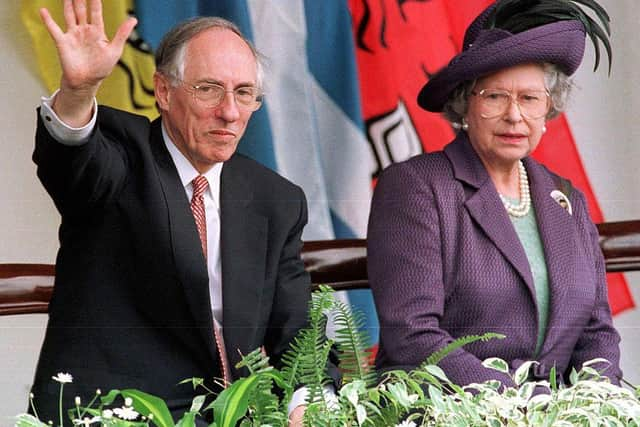Scottish independence: Tony Blair admits devolution ‘weaknesses’ failed to ‘end argument” over nationalism
Speaking ahead of the ballot next week, the former prime minister also said he doubted whether Scots wanted to go through the “disruption” of an independence referendum – even if the SNP did win a majority.
The Scottish Parliament was founded in 1999 after the Labour Party, under Mr Blair’s leadership, promised a referendum on devolution in its 1997 General Election manifesto.
Advertisement
Hide AdAdvertisement
Hide AdLabour’s Donald Dewar, who led the victorious Yes Campaign and went on to become the inaugural First Minister of Scotland, said at the time that he hoped the result would “end much argument and dispute” over Scotland’s constitution.
‘Union would be in tatters’
In an ITV interview nearly 25 years later, however, Mr Blair has admitted the devolution project did not stop the rise of nationalism.
But the former prime minister insisted that if Labour had not implemented its 1997 commitment to policy, “the union would already be in tatters”.


“Where I think we were wrong was in believing that devolution would end the argument of independence – it hasn’t ended it, but it is still a very substantial part of the bulwark against it,” he said.
The 67-year-old added: "I do think one of the weaknesses in the way we approached devolution was not to build real cultural ties and emphasise the enormous things that the different countries in the United Kingdom have in common."
‘It becomes more difficult over time’
Mr Blair also pushed back against the idea of holding a second independence referendum, saying: "I'm not sure that even if the SNP win a majority in the Scottish Parliament that it necessarily means that people want to go through the disruption of an independence campaign – I would frankly doubt that."


But asked whether it would be possible for Boris Johnson to resist a referendum indefinitely, Mr Blair replied: "It becomes more difficult over time if opinion looks as though it is fixed."
He also predicted that Scots would “vote ultimately to remain inside the UK” if a second referendum went ahead.
A message from the Editor:
Thank you for reading this article. We're more reliant on your support than ever as the shift in consumer habits brought about by coronavirus impacts our advertisers.
If you haven't already, please consider supporting our trusted, fact-checked journalism by taking out a digital subscription.
Comments
Want to join the conversation? Please or to comment on this article.
